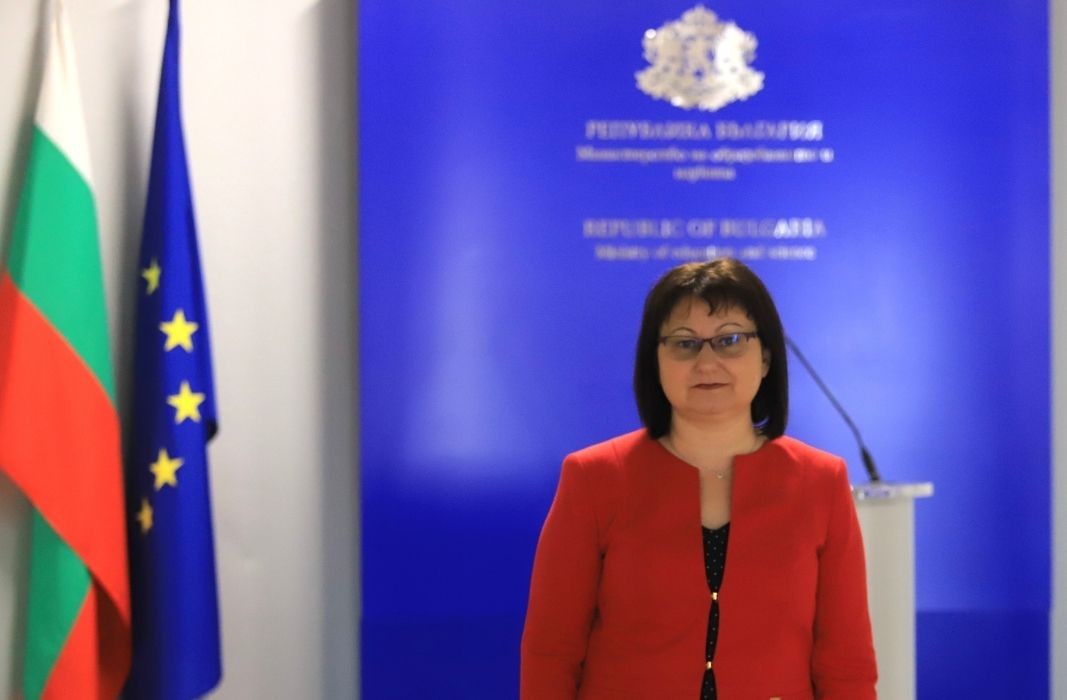In-person classes for children from the 1st to the 4th grade, halted in many schools in Bulgaria due to the high coronavirus incidence rate, may be resumed as of 8 November. The Ministry of Education says that a return to school during the current epidemic wave can be made possible if a safe environment is ensured. The measures include the testing of children, free of charge, who are not vaccinated (for those over the age of 12) or have recovered from coronavirus, and vaccination, a document of recovery from COVID-19 or free testing for their teachers.
If parents give their consent, their children will be tested for the virus so that they can attend school in-person. If they do not give their consent – their children can stay home and study online.
“At the Ministry of Education and Science we are doing our best to create the organization so that the testing of 1st to 4th grade children can start immediately,” Deputy Minister of Education Maria Gaidarova said for BNR.

“So that tests will be conducted when the incidence is more than 750 per 100,000. We sent out a questionnaire to schools asking them how prepared they are, and we are yet to analyze the results. We also take into consideration the opinion of the parent organizations, we are hearing every opinion and every question raised. We realize there will be situations that will be specific, but that is a good European practice and I believe, I am sure that parents and teachers will be able to create the organization necessary on the spot so that the pupils can return to school.”
For the smallest children in-person attendance is very important. If the children are not in class they may be left behind in their schoolwork, but also in the establishment of the habits connected with the learning process.

“The worries which parents have, but also which our analyses show, are that the educational process is below standard, and as a result – that the children are not acquiring literacy skills. That is why we should be thinking in two directions – introducing these tests so as to create a safe environment and making efforts to prepare and organize it. When both teachers and children are in such an environment then we can have an educational process of this kind. Otherwise the risk is too high and without testing we cannot guarantee a safe environment.”
Most of the parents welcomed the decision in the hope that their children will be able to go back to in-person school attendance.
“I don’t think that this measure can do any harm, quite the opposite,” says Maria Angelova, mother of a 2nd grader. “I believe it is going to help find the children who are sick and stop the spread of the diseases among their schoolmates and their families. As to the organization itself, I cannot imagine how it is going to happen, otherwise I don’t have any objections, even if invasive tests are applied as long as the children are healthy.”
At the biggest school in the country, with almost 2,400 pupils – school No. 18, William Gladstone for the study of Eastern languages - headmistress Velichka Stoycheva says that more than 60% of the parents supported the idea of testing children at the very start of the school year:

“Now the picture is very much changed, things are much clearer as to how the different testing options are going to be applied and I expect this percent to be higher. If we want the system to run smoothly there have to be tests so as to ensure a safe environment for the children. If tests are introduced, they will be performed at the beginning of the first class by the respective teacher so that it can be a simultaneous process for all students.”
Interviews by Horizont channel, BNR
Editing by Darina Grigorova
Photos: BGNESOn the eve of the New Year, the most beautiful "gelina" bride of the last 4 years is chosen in the Bulgarian-Mohammedan village of Ribnovo, in south-west Bulgaria. "Gelina" is the name given to brides in the region. It is a unique tradition, where..
A good year for the Executive Agency for Bulgarians Abroad, in which everything was happening as it should. This is how the agency’s head, Rayna Mandzhukova, summed up 2024. In an interview with Radio Bulgaria, she expressed..
The fountain in the center of Bukata Garden, located near Madara Bath in Sofia, has been restored to its original form with the help of the Sofia Municipality. All the elements of the figure have been made from brass in their original form. The..
"Every day, we should think about peace and the messages that politicians send,” journalist Tsvetana Paskaleva, who has been living in..

+359 2 9336 661
